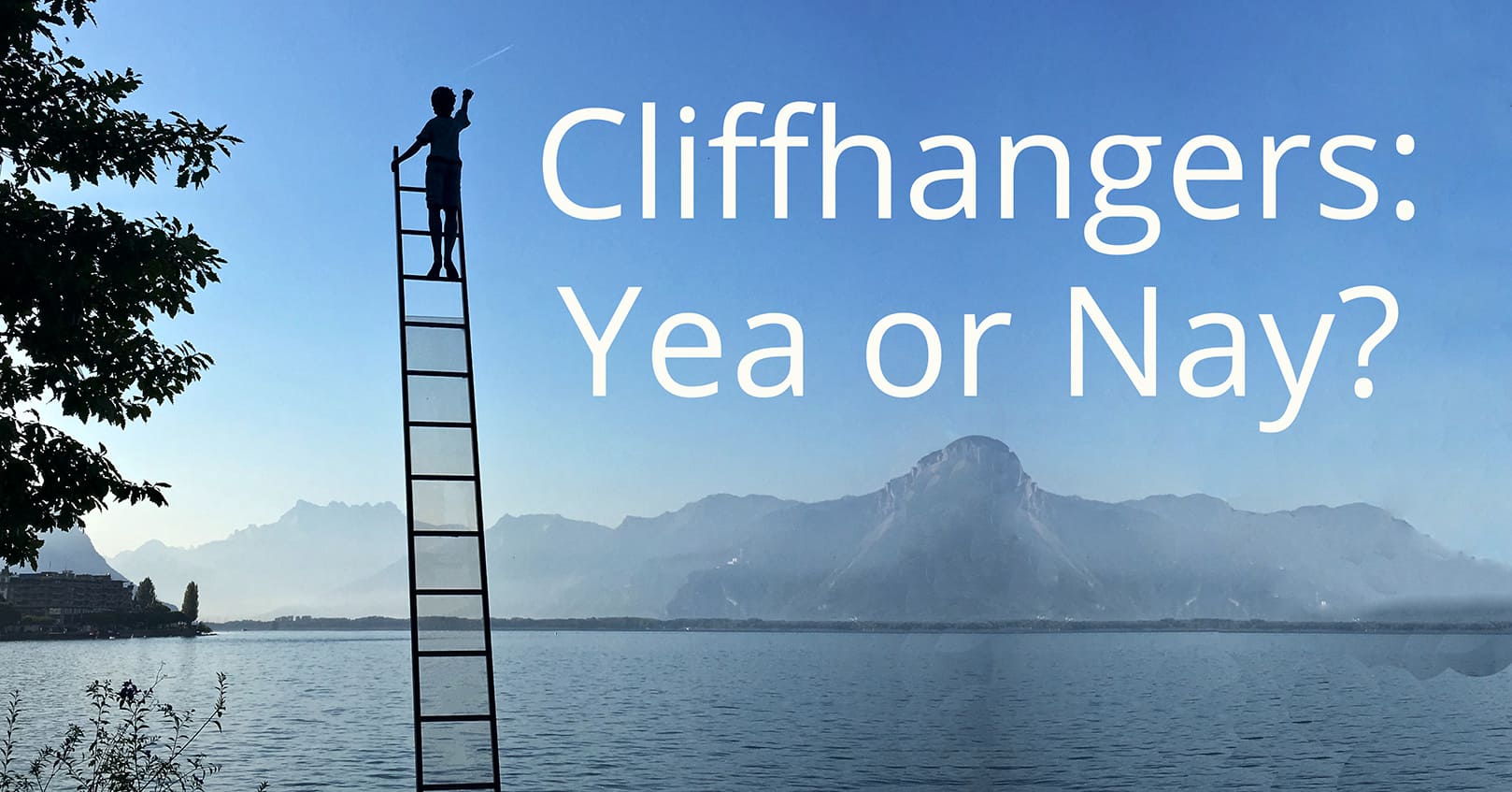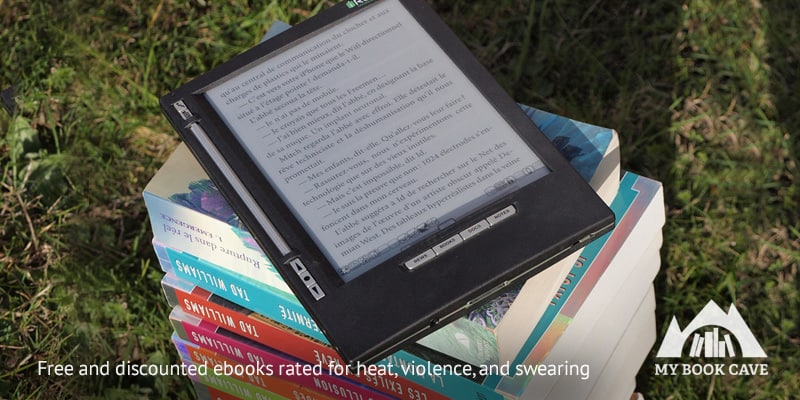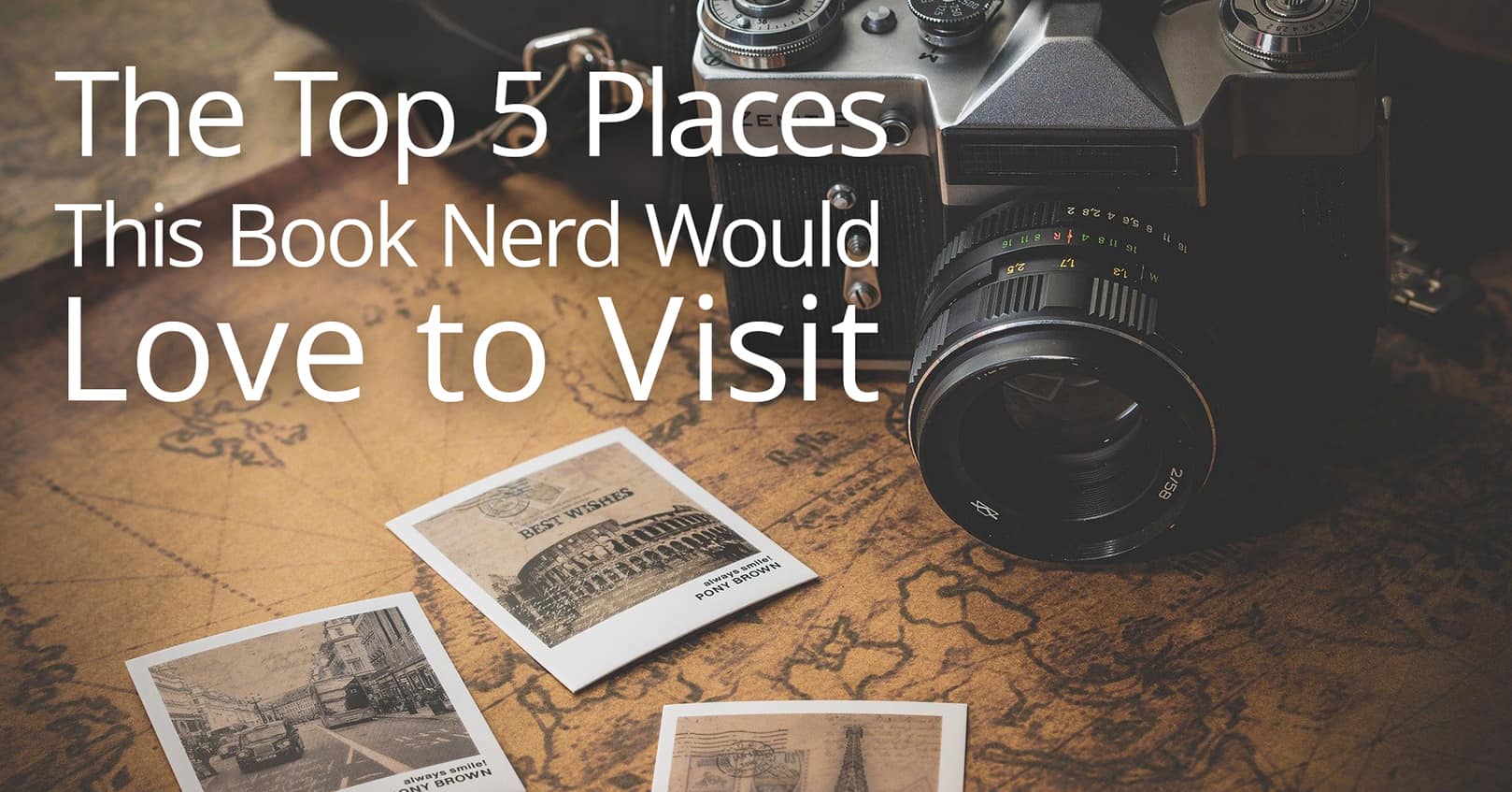
It’s a scenario familiar to everyone: you’re breathlessly racing along in a story, dying to find out what happens and then—BAM! It just . . . stops. If you want to know the ending, you’re going to have to buy another book.
Cliffhangers—a plot device that ends a novel, movie, or television series with a main character in peril, or with a shocking revelation that needs more explanation—are a highly polarizing element to many readers, and must be distinguished from a “hooky” ending to a scene or chapter. Are they smart marketing ploys that promote excitement, or infuriating rip-offs?
One might argue that the earliest cliffhangers were lifesaving. In 1001 Nights, which dates to the Middle Ages, Scheherazade, newly wed to a ruler who habitually married girls only to kill them the next morning, told her husband a story on their wedding night, leaving it unfinished. He spared her life so he could hear the end of the tale, after which she spun another, and another. Finally, after a thousand nights, she had no more stories left, but by that time, he’d fallen in love with her.
The term itself comes from the 1893 serialized version of A Pair of Blue Eyes by Thomas Hardy, in which the male love interest is left dangling from a cliff, to be saved in the next volume by a rope quickly fashioned by the heroine from her underwear. Charles Dickens used cliffhangers in his stories to pique interest in the next installment, and in one instance, fans rioted on the dock in New York Harbor, crying, “Is little Nell dead?” while waiting for the ship to come in with the new serial.
Television serials used the technique, from the 1914 television melodrama The Perils of Pauline to the primetime soap operas like Dallas. The “Who Shot JR?” cliffhanger made it the highest-rated television show in history, and ensured the longevity of the device in novels, television, and movies. Who can forget Han Solo, encased in carbonite? As marketers realized the potential cliffhangers had to induce a drive to buy or watch the next episode and enough emotion to foster water-cooler discussions, they became commonplace. In television shows on the chopping block, cliffhangers were sometimes deliberately used in an attempt to incite viewers to campaign to keep the series.
Inevitably, the backlash occurred as they grew increasingly more contrived, and “jumping the shark” entered the lexicon. Look at the online reviews of any story that doesn’t complete the main plot line, and you’ll see anger from readers who didn’t get what they paid for—a satisfying closure. Some feel taken advantage of or manipulated, as if they’ve fallen for a “gotcha” money grab by the author.
Why, then, the continued popularity of cliffhangers? They still work to drive sales and preorders for some authors. The downside is a risk that a delay in publishing will cause waning interest—gone are the days when fans would riot while waiting at the dock, since there are so many other options now. Some readers won’t start a series until they know it’s complete, citing the long delays in certain popular fantasy series as a reason.
Others have more damning complaints: that cliffhangers are the calling-card of authors who can’t craft an appealing ending, or who pad one story into three longer segments.
I don’t mind a cliffhanger, as long as I know that’s what I’m getting, but the unexpected ones make me think twice about reading more from that author. I tolerate them better in fantasy and science fiction, compared to romance or mystery.
For my own writing, I’ve chosen not to employ cliffhangers, instead trusting that the stories themselves are strong enough to entice readers to check out the other novels. In fact, part of the Chloe Holiday Promise is “no cliffhangers.” My latest release, Fly Boy, is unrelated to A Boy and his Dog from early in the series. These and the Helios Series can be read in any order without a reader feeling lost, or as if they have to spend hours to “catch up” to the latest release. It’s hard work to do it this way, but worth it to me, to give readers a satisfying read. There are, however, a few “Easter eggs” threaded through the stories, which give sequential readers a tiny extra jolt of fun.
What about you, Book Cavers? Do cliffhangers enrage you, or are they a good way to keep your mind on a story? Do you more or less expect them for certain genres? Does it matter if they are unexpected? Weigh in—I’d love to hear your comments!
Happy reading.
















My opinion on cliffhangers in any medium depends on two important factors: how long until the next “installation” and if there’s an additional fee to get the rest of the story. The longer between the cliffhanger and its resolution, the less I tolerate it. But more importantly, if I’m going to be expected to pay an additional fee beyond whatever may have been required to start the story to get a proper resolution to the story that’s egregious. I’ll tolerate an additional fee (eg, part 2 of a movie like Dune) if I know going into it that it’s incomplete, but a cliffhanger in that situation would just make me extremely angry.
Makes sense. Certainly, the end of Infinity Wars, where half of them turn to ash, made me less enthused to watch the rest.
Cliff hangers are a good way to get me not to read. I should specify that a loose end, that doesn’t affect the current story doesn’t bother me, and depending on how that is handled may (emphasis may) entice me to read more. But don’t lure me in with fake bait.
“Fake bait” is the perfect term for it!
Cliff hangers, to me, are infuriating and a money making thing. Why not just write a novel or have the characters reappear in other books and their story be enhanced? Not a dragging on of the plot that you know how it’s going to end.
I agree. I think it’s because it’s hard to do the “character reappearance” well. If they’re just shoved in there, they might as well have a flashing neon sign that reads, “THESE PEOPLE will be in the next one; that’s the only reason they’re here!” And in the next novel, it’s a balance between having the old characters not trigger a “Who the heck is THIS person?” response vs rehashing old stuff. I’ve tried to thread that needle by having my characters from previous books bring something new and unknown with them in the next book, so that old readers get a jolt of “Hooray! It’s Konstantinos!” while getting a different facet, while not leaving new readers out of the loop. But it does take a lot of work.
I’m like you, Chloe, I don’t mind a cliffhanger too much if I know to expect one. One of my favorite authors writes cliffhangers a lot but she’s never let me down and publishes each book in her series fairly quickly. A cliffhanger at the end of a 100 or so page book is really frustrating as it usually seems like what should be a longer novel that’s been chopped into small pieces.
I think that happens, too: more money made by selling 3 tiny novellas rather than 1 300-pager. Part of it might be the “visibility” factor, though, because a new release will get more views. This is why some advocate publishing a book every 4 to 6 weeks.
I absolutely LOATHE (yes, I am shouting my hatred) cliffhangers. They are a cheap trick to get readers to buy more books and I refuse to reward such garbage. If the book isn’t good enough to keep a reader, then it’s the author’s shoddy work. I stop reading a series if the author stoops to such tricks. I also refuse to read any other books by that author. It’s the only way I can express my contempt. I do not object to hints of future events, although I don’t like the suspense, but stopping mid-battle means I will never know who won because I won’t forgive such a betrayal.
It kind of is a betrayal, if it’s not expected, isn’t it? If more people “voted with their feet” like you do, I’ll bet it would stop, but it must work well enough for people to keep doing it. Sort of like a loved one doing something they know you won’t like, because they assume you’ll forgive them…
I hate cliffhangers. There were 1 or 2 authors I followed who started doing cliffhangers regularly. I only read them because they had been go to authors for me. That seems to be all they do lately, so I don’t read them any longer. I do think it should be clearly stated in the description that the book ends in a cliffhanger. There is almost nothing worse, after purchasing and reading a book, then to find out there are 1 or more books that have to be read to get the complete story.
I agree: if you know what you’re getting and choose The Way of the Cliffhanger, that’s fine. But that feeling of “gotcha” makes me feel taken advantage of, when I wasn’t expecting to buy 2 or 3 books to get the end of the story.
I kind of like an ending that involves a secondary character or two and what they might be getting into in the next book. But I don’t want a cliffhanger involving the primary characters. And my memory is poor enough, that if I wait a few weeks I can forget about the plot and characters. I do typically remember enough to not want to read another book by that author.
Yep, this is what I do. Just a hint that there will be more in that world. But I don’t ever want readers to think, “Well, that was a rip-off!” because they didn’t get an ending with the main characters.
There is a difference between a series and a serial, and it isn’t always made clear which is applicable for a new book. In a serial, a potential reader knows they aren’t getting a whole story…cliffhangers are pretty much built into the concept. In a series, though, each book should be a complete story with no cliffhangers though there may be an overarching story arc.
For me the one possible exception is between the penultimate and final books in a story arc: the build up and final conclusion can simply be too long for one volume.
Yes, exactly! Series should have complete stories with no cliffhanger, but a hint of what’s in the next book is OK with me. A series of books with cliffhangers in each one until the final should be clearly labeled as a serial.
I also don’t mind if there is a overarching story line that may carry through more than one book, if each book has an HEA for the couple featured in that individual book.
I agree entirely. If it’s clear what’s on the tin, readers can choose accordingly.
I absolutely detest cliffhangers. I was taught, a book has a beginning, middle, and end. Not the beginning in first book, with the middle over several books, and the end in the last book. To me a writer who writes cliffhangers are not confident in their writing ability to draw readers, and uses a cheap marketing tool to cheat readers. In fact, I refuse to support authors who do not have enough respect for their readers to give them a full story in one book. I have a “Do NOT Read” list of authors who write cliffhangers.
I’ve sometimes second-guessed myself about working so hard to make each novel in a series stand alone, when all the other cool kids are doing cliffhangers. But I just can’t do it; it feels like going out for a nice meal, getting a splendid appetizer and salad, and then being told, “sorry, you’ll have to come back next week–and pay again–for the full dinner.” That’s interesting, to keep a list, and makes sense. Luckily, there are many great authors out there to choose from!
There’s something a lot of people don’t realize, a set of books ending in cliffhangers are serial books, NOT a series. A series is books grouped together with each book standing on its own and can be read in any order.
Exactly! Thank you for choosing not to follow the cool kids into the cliffhangers cicle.
I don’t mind cliffhangers if the story is finished. I absolutely hate them when the story abruptly ends because the next book does not get written/published. I have that happen in 2 series, in one of them the book ends with the hero in an explosion. The third book of the series was never published, so there you are! The other was a similar thing, though the author hadn’t written the ending; and despite many promises to do so, just decided to not.
Very frustrating.
Ouch! Yeah, there’s a difference between a reader choosing not to go on with the series, as opposed to the author stopping. That’s a drag, especially if you really loved it.
It depends on the type of the clifhanger in relation to the rest of the story. I tolerate cliffhangers when there are substantial other plot points resolved. If nothing is resolved it becomes a “do not read ANYTHING ever again by this author”. I enjoy series with the development of characters over the long haul while certain storylines are not resolved until many books in – because the primary line of each book is resolved. An example would be the Honor Harrington series by David Weber. The war is a focus encompassing many of the books but the story within each is complete.
I agree–a mini-tease for a new installment is fine–just don’t leave us hanging for the main storyline! Thanks for the recommendation. 🙂
I loathe cliffhangers, and refuse to buy the next book in a series which uses them, or any other books from the same author either. There are scores of absolutely excellent writers whose series lead on from one book to the next – for example Marie Force’s “Fatal” series and JC Andrijeski’s “Quentin Black” series – without leaving the reader frustrated by the non-ending. I devour their books and look forward WITHOUT frustration to the next in the series.
Anyway by the time a sequel comes out, I’ve usually lost interest in the characters/storyline because authors who take the trouble to craft a story with a beginning, a middle and an end as my old English tutors used to say, have engaged all my attention. All hail, J D Robb and Janet Ivanovich!
This is pretty much me, and why I make sure each of mine stand alone. But it must not bother everyone, since so many authors do it!
They are, of course, both infuriating and canny marketing ploys – sometimes both and sometimes cynically used. It all rather depends on the circumstances – and how they are presented. I think that in a serial (book/magazine, television series) an element of cliffhangery is useful. For example – I’ve recently finished a three volume sequence of a longish series of books that opened with an author’s note that it would be a two volume ‘episode’ but which then burgeoned into three. Taken as a whole the sequence reads smoothly – but at least one revieweer was mortally offended by the unfinished narrative at the end of volume two…
Ha! I can see how they’d be annoyed if they felt they were promised two books, then it felt like a “bait and switch.” Methinks a big part is about expectations and promises.
It’s a bit more complicated than that – the books are 4 – 6 in an ongoing series, a follow-up on a 32 book earlier series… It’s not quite the Game of Thrones or Name of the Wind situation where ‘faithful’ readers have been waiting for concluding volumes for years (?decades?). And of course – thre are famously unfinished books (Edwin Drood, anyone… )